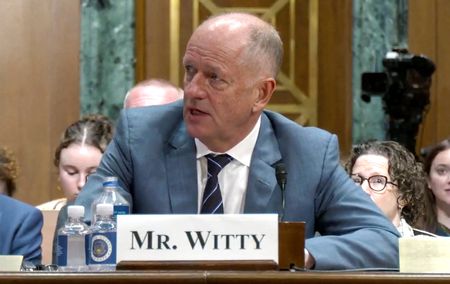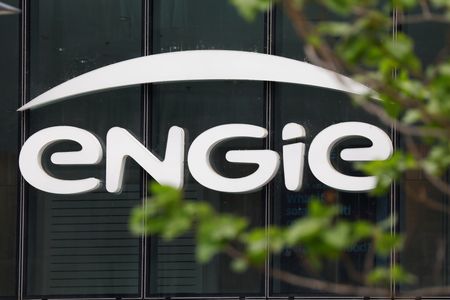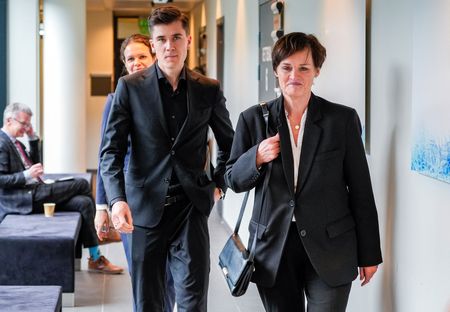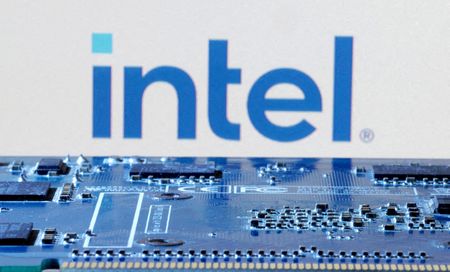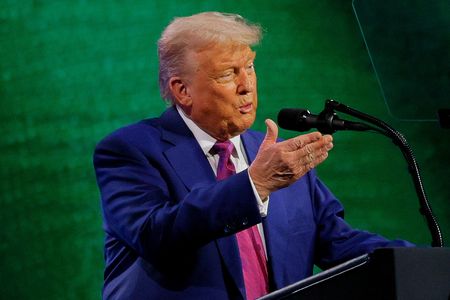By Sriparna Roy and Sneha S K
(Reuters) – UnitedHealth Group said its Chief Executive Andrew Witty resigned as of Tuesday, and the company suspended its annual forecast due to surging medical costs, sending shares plunging nearly 16% to a four-year low.
Chairman Stephen Hemsley, 72, who was CEO before stepping down in 2017, will assume the CEO title once again.
Witty chose to leave for personal reasons, the company said, without elaborating. His exit comes only a few weeks after UnitedHealth cut its annual forecast and reported its first earnings miss since the 2008 financial crisis, marking a major setback under Witty’s leadership.
“Many of the issues standing in the way of achieving our goals as well as our opportunities are largely within our control,” Hemsley said on a call with investors.
UnitedHealth has grappled with several major challenges over the last 12 months, including a cyberattack at its tech unit that affected some 190 million people, a report of an investigation into its Medicare billing practices, and an unexpected surge in medical costs that has hurt its bottom line.
The company was also catapulted into the public conscious in December when Brian Thompson, the CEO of its insurance unit, was murdered in New York just before its investor conference.
Kevin Gade, chief operating officer at UnitedHealth investor Bahl & Gaynor, said the abruptness of Witty’s exit “certainly is a surprise,” but noted that UnitedHealth had faced unique struggles in recent months.
“We’re not likely to hear more on Andrew’s departure but it’s fair to suggest the recent killing of his co-worker, the constant fear of his family’s and his safety and the operational pressures of recent likely led (in) part to this decision,” said Gade.
Shares of UnitedHealth fell 20% on April 17 when it cut its forecast and have yet to recover. Stocks of other health insurers were also hurt after UnitedHealth’s financial hit prompted concerns that high costs could spill over to other companies, but those shares have rebounded.
Rivals Humana and Elevance Health have said in recent weeks that they have not seen unusually high demand in their insurance and caregiving operations, and that medical costs have remained in line with their expectations.
Those disclosures prompted some analysts to say that UnitedHealth’s issues could be company specific. UnitedHealth said during Tuesday’s investor call that it was seeing more demand for medical care from new members and from people with complex conditions, which was increasing costs.
“At a certain point, leadership must be held accountable,” Gade said.
It had previously said that the need for medical care rose beyond what the health insurer had expected, led by physician and outpatient services.
The company expects to return to growth in 2026 and plans to include expectations for higher demand in prices for its Medicare Advantage health plans next year.
Before Tuesday’s slump, UnitedHealth’s stock had lost more than 25% of its value over the past 12 months. Tuesday’s announcement also hit shares of other health insurers including Humana, CVS and Elevance Health, which were down over 3%.
Costs have been rising in the U.S. health insurance industry since mid-2023 due to surging demand for healthcare services under government-backed Medicare plans for older adults and people with disabilities.
‘STOPGAP’ SOLUTION
Three analysts said Hemsley’s appointment was a temporary solution and that it was unclear if he would hold the role for the long term.
“It seems a sort of very sudden move for Witty to leave, it just doesn’t seem like they have a plan. I think putting in Hemsley just seems like a stopgap,” said James Harlow, senior vice president at Novare Capital Management.
Hemsley, 72, was the company’s chief operating officer during UnitedHealth’s previous turnaround in 1998. He is often credited with creating the Optum health services business that has boosted the company’s growth in the last two decades.
That unit was viewed as the more stable part of the business than insurance operations that have been hurt by varying medical costs in recent years, but in April the company said it was facing “unanticipated changes” that affected planned 2025 reimbursements for Optum.
Witty, 60, the former CEO of British drugmaker GSK, was named head of UnitedHealth’s pharmacy benefit manager unit Optum RX in 2018 before being promoted to the top role just short of three years later.
Harlow said that it was also possible that Witty was being “pushed out” as investors “don’t tolerate consecutive misses and guidance cuts”.
(Reporting by Sriparna Roy and Sneha S K in Bengaluru and Bhanvi Satija in New York; Editing by Tasim Zahid, Devika Syamnath, Tomasz Janowski and Deepa Babington)

